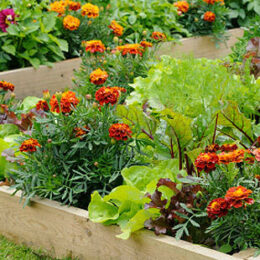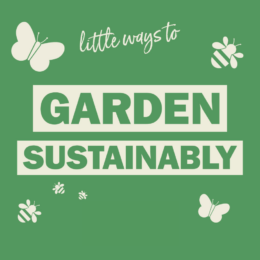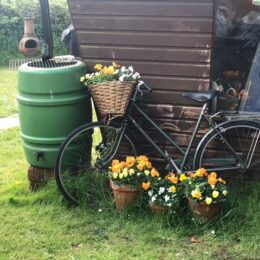Pests on your plants and weeds that just keep on growing can be prevented by using organic methods. These include companion planting, mulching, using netting to protect vegetables, and scattering eggs shells around your plants.
Prevention
To stop plants from getting infested by pests or diseases and to avoid using chemicals take the prevention method by:
- Checking your plants regularly so you can catch any infestations or diseases quickly.
- Pick off pests like slugs by hand.
- Use mesh netting to keep pests away from your vegetables.
- Encouraging natural predators, such as birds, into your garden as they will eat unwanted slugs and aphids.
- Grow your plants in the correct position in your garden as this will keep them in their best condition.
- Using copper tape on pots acts as a barrier to avoid pests getting to your plants.
- Scatter crushed egg shells or gravel around your plants.
- Rotate the location of your plants to avoid recurring infestations/diseases.
- At the end of the season, clear up infected leaves.

Photo by GAP Photography
Mulching
Mulching helps to retain moisture, suppress weeds (handy if you don’t like weeding), and improve the soil around your plants. It boosts the soil’s carbon content by keeping everything healthy underground and storing the carbon in the soil. If you leave soil bare it is open to the elements and a downpour can wash away soil and nutrients from your plants.
- Types of mulch: bark, straw, shredded leaves, newspaper, grass clippings, and composted manure.
- Low-growing plants also help as they spread across the ground protecting the soil.

Photo by GAP Photography
Companion Planting
Companion planting is a clever technique associated with organic gardening that can help to achieve healthier plants and larger crops with better harvests.
The basic idea behind companion planting is that by planting certain combinations of two or more plants together they will help each other to grow by attracting pollinators, acting as a decoy for harmful pests, providing shelter from the wind and sun or providing nutrients in the soil. It is a technique that is mainly used in the vegetable garden but it can also be widely used in the rest of your garden.
Here are a couple of ideas:
The strong scent of chives and garlic will deter aphids from roses and chrysanthemums.
Marigolds deter whitefly and mask the smell of surrounding crops. They also attract plenty of beneficial insects.
Read our ‘How to‘ guide for more information.
Biological Control

Beneficial Nematode ‘NemaKnights’
Beneficial nematodes can be an effective means to control pests in the garden without the use of chemicals. Nematodes are microscopic creatures, that act as parasites to other insects. They release bacteria into the host’s body to kill and then eat them. There are different types of nematodes to treat various types of pests. They come in a sachet with a paste. After purchase, you add water and the mixture is applied to the soil. We have a good range in store and more available to order, ask a garden shop assistant for help in picking the most suitable nematode for your pests.
Using chemicals is sometimes necessary as a last resort to get rid of pests and weeds in your garden. There is a wide range of organic sprays, make sure to always read the label on how to use the product.






